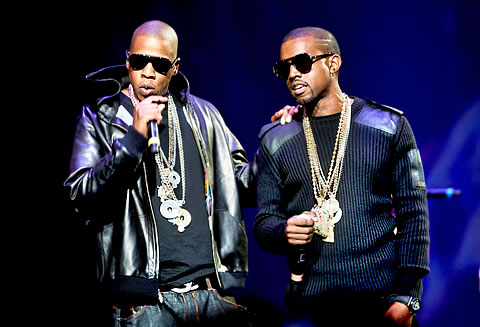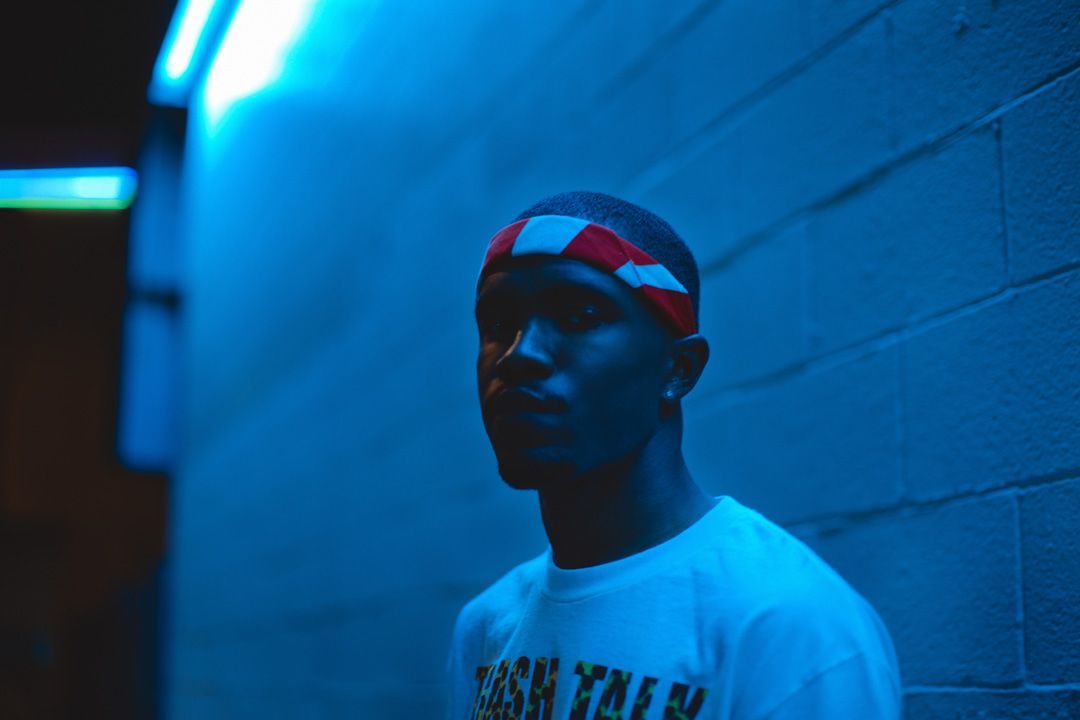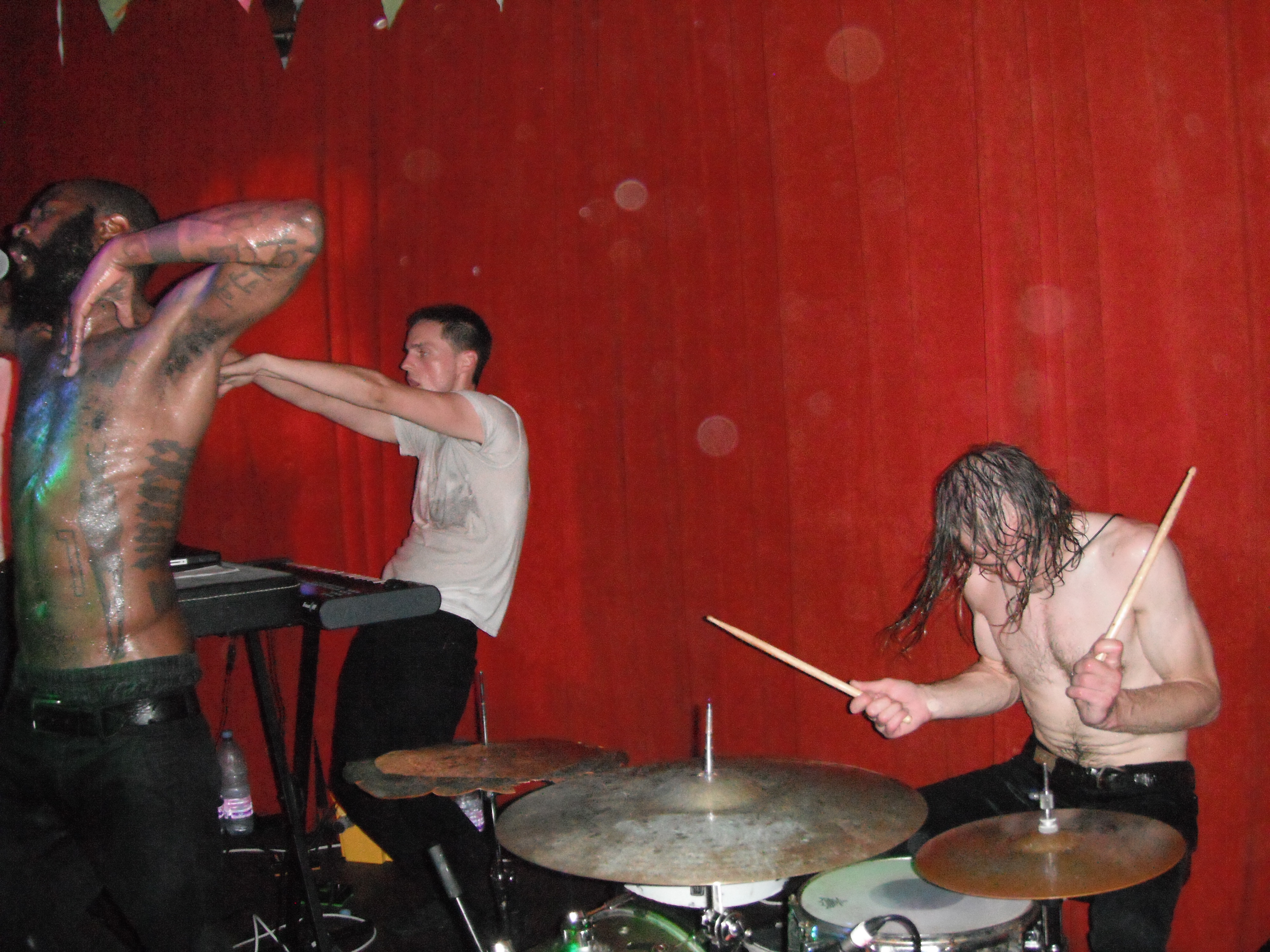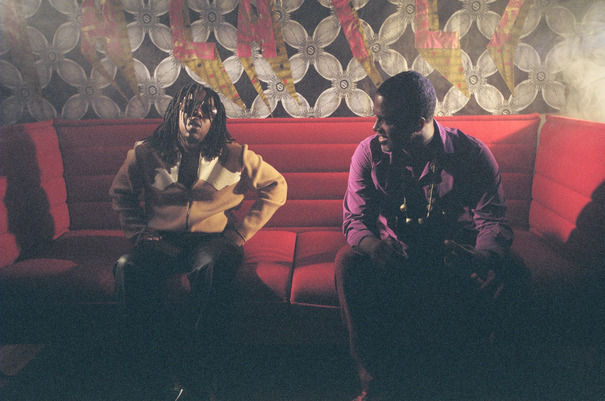

When talking about modern-day hip hop, you’d be hard pressed to argue there are two bigger names than Jay-Z and Kanye West. They are, to put it one way, at the very top of the talent pool, ruling over all others. Which one is the true #1 is plenty debatable, but according to them it really doesn’t matter. They hold a mutual respect and friendship towards one another, and hip hop is more of a collaborative art than it is a true solo pursuit. Look at almost any rap record and you’ll find a list of guests about a half mile long. Jay-Z and Kanye have each guested on one another’s records at different times in their careers. Kanye’s fingerprints were all over Jay-Z’s last album “The Blueprint 3”, while Jay-Z made appearances on Kanye’s first couple efforts. Those single song collaborations were often special unto themselves, but they never overshadowed the full vision of whichever artist’s name was on the cover. Speaking of visions, Kanye has just been having a banner year since the release of his last record “My Beautiful Dark Twisted Fantasy”, an album so highly praised that many are calling it a masterpiece. To put it another way, he doesn’t particularly need to be working on anything new right now, and even when he does you’d imagine expectations would be high. Yet when inspiration strikes and your buddy Jay-Z is ready and willing to work with you, it can be a tough calling to ignore. Hence “Watch the Throne”, a full length collaboration between the two current kings of hip hop. If it seems like an event record, that’s probably because it is. To treat it with the utmost of sincerity however, might be a mistake.
That’s not to say “Watch the Throne” is a joke record, because by all means it is not. Instead, try to view it as one of those moments where two extremely popular hip hop icons are getting together to just have a little fun. Since neither has to carry the burden of the entire album on their own, they’re able to relax a little bit and worry less about how the songs reflect on them as individuals. Besides that, Kanye West and Jay-Z approach hip hop in markedly different ways, with Kanye being very emotionally transparent in his words and experimental in his beats while Jay-Z is more straightforward and a storyteller. To put it in ruling terms, Kanye is like a crazy dictator, commanding his armies based largely on how he’s feeling emotionally that day. Jay-Z is more like a President in a democracy, in many ways isolating himself from any major decisions by having a hierarchy in place to blame mistakes on. He also adapts to the will of the people somewhat, or the will of his closest advisors, allowing their ideas and influence to be felt in his work as that simultaneously allows less of his own influence and personality to be exposed as a result. On “Watch the Throne” it results in an interesting dichotomy in which Kanye’s dominant personality continues to rule over all, both sonically and lyrically, while Jay-Z allows it to happen and has his arm twisted into trying that hat on himself. In other words, we get the same Kanye we’ve always gotten, but are exposed to a part of Jay-Z that has been rarely seen up until now. The entire record is not one long emotional confession from Jay-Z, but there are a few tracks where he certainly reveals more than he needs to – “Welcome to the Jungle” being the most obvious among them. The thing about such moments is that you can almost hear it in Jay-Z’s voice that he’s a little uncomfortable and it lessens the impact of a couple tracks as a result. A track like “New Day”, in which Kanye and Jay-Z play the “what if” card and dish out advice to their potential future sons is partly ruined because Jay sounds just a little unsure of himself. Funny that it comes up immediately after “Gotta Have It”, one of the record’s best moments, in which Kanye actually sounds more like Jay-Z rather than vice versa.
Topically speaking, a significant portion of “Watch the Throne” is devoted to the hip hop gold standard of bragging about excessive wealth. Given that Jay-Z and Kanye West are both rolling in money and their gold-plated album cover is opulent just to look at, these two have plenty of ideas about what it means to live the “good life”. Listen to or watch the video for first single “Otis”, and you’ll hear an array of high class brands mentioned, likely along with a few you’ve never heard of before because your bank account simply won’t allow you to even research them. That track in particular also misuses and abuses an Otis Redding sample, in that the music legend is nearly unrecognizable thanks to how brief and modulated his vocals are. It likely also cost a pretty penny to obtain all the samples used on this record, from James Brown to Nina Simone to Curtis Mayfield. That’s not even counting the guest vocalists ranging to Frank Ocean from Odd Future on a pair of songs through Jay-Z’s own wife and songstress Beyonce. And while such decadence both sample and lyric-wise can be a whole lot of fun, it’s good to know that these two guys can talk about more than just how big their bank accounts are. “That’s My Bitch” is about women, though not necessarily in the way you might imagine. Not only does Bon Iver’s Justin Vernon contribute some vocals to the track, but Jay-Z gets an remarkably solid verse as he pulls apart the exceptionally high beauty standards women are often submitted to these days. Kanye is the one that makes an ass of himself on the track, which then causes it to lose some of its power. The issue of “black on black violence” is addressed across a couple tracks, most notably “Welcome to the Jungle” and “Murder to Excellence”, which effectively function as two halves of a similar whole. Sandwiched in between them is “Who Gon’ Stop Me”, an ode to many of the famous leaders from our past that were killed for many different reasons – power being chief among them. Kanye spouting off a handful of lines in Pig Latin is nearly reason enough to make it an album highlight. Meanwhile “Made in America” creates a new royal family in its Frank Ocean-sung chorus, making mention of “sweet king Martin, sweet queen Loretta, sweet brother Malcolm” among others while Jay and (mostly) Kanye go on about their rise from the streets to being able to generate millions of blog hits. It’s one part poignant and another part braggadocio, which actually does a great job of again highlighting the differences between Jay and Kanye. Given their past histories, take one guess as to which one of them has a bigger ego.
Admirable though “Watch the Throne” might be, and as packed with talent as “Watch the Throne” might be, the sum of one part Jay-Z and one part Kanye West actually equals something lesser than the two when taken as individuals. When packaged in terms of single-song guest spots on one another’s records, the dichotomy tends to work out of sheer brevity and counterpoint – a momentary yielding of control. Because they’re ostensibly operating as equals here, there’s only so much room underneath the spotlight and gracious though they might be in sharing, you can tell that neither one of them is operating at full capacity. Given Kanye’s strength as a producer and Jay-Z’s strength as a lyricist, they’d have been better off playing to those big pluses rather than trying to evenly balance them. Kanye could easily have done a lot more in generating creative beats, as evidenced by “Why I Love You”, just as Jay-Z could have unleashed more controlled spitfire verses, as evidenced by “Lift Off”. While it’s always great to have an artist step outside of his or her comfort zone, it counts as a misfire if the results are ill-timed and awkward. Not only that, but the lack of a genuinely compelling and memorable single on this album makes it that much harder to fall in love with and generate repeat listens. For the strikes against this album, there are as many, if not more positive ways to view it. Foremost among them is the sheer talent that Jay-Z and Kanye have, to the point where even in a diminished capacity both still manage to shine when the time is right. If this was at all intended to be a battle for the proverbial “throne”, neither side officially wins but both make strong cases in one another’s favor. With the weightiest of expectations upon their shoulders, these two don’t quite meet the high watermark, but they come really damn close. “Watch the Throne” may not be the new gold standard of hip hop records, but do you think either one of these guys would be okay with accepting silver?
Click through to stream the song “Otis”
Buy “Watch the Throne” on iTunes









